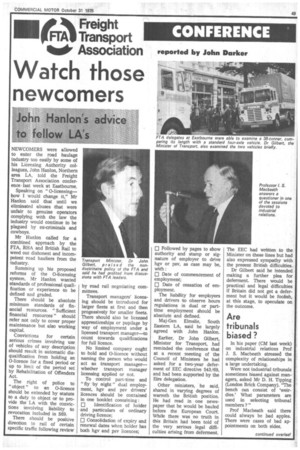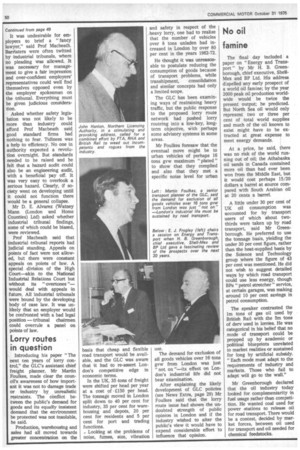Are tribunals biased ?
Page 51

Page 52

If you've noticed an error in this article please click here to report it so we can fix it.
In his paper (CM last week) on industrial relations Prof J. S. Macbeath stressed the complexity of relationships in a large undertaking.
Were not industrial tribunals sometimes biased against managers, asked Mr D. H. Tipping (London Brick Company). "The bench can consist of 'weirdies.' What parameters are used in selecting tribunal members ?"
Prof Macbeath said there could always be bad apples. There were cases of bad appointments on both sides. It was undesirable for employers to brief a "fancy lawyer," said Prof Macbeath. Banisters were often twitted by industrial tribunals, where no pleading was allowed. it was necessary for management to give a fair impression and over-confident employers' representatives could well find themselves opposed even by the employer spokesman on the tribunal. Everything must be given judicious consideration.
Asked whether safety legislation was not likely to be more than industry could afford Prof Macbeath said good standard firms had nothing to fear. Tidiness was a help to efficiency. No one in authority expected a revolution overnight. But standards needed to be raised and he felt that a hazard audit could also be an engineering audit, with a beneficial pay off. It was very easy to overlook a serious hazard. Clearly, if society went on developing until it could not function there would be a general collapse.
Mr D. E. Alvarez (1,Vatney Mann (London and Home Counties) Ltd) asked whether industrial tribunal findings, some of Which could be biased, were reviewed.
Prof Macbeath said that industrial tribunal reports had judicial standing. Appeals on points of fact were not allowed, but there were constant appeals on points of law. A special . division of the High Court—akin to the National Industrial Relations Court but without its "overtones "would deal with appeals in future. All industrial tribunals were bound by the developing body of case law. It was unlikely that an employer would be confronted with a bad legal position — tribunal Chairmen could overrule a panel on points of law.
































































































